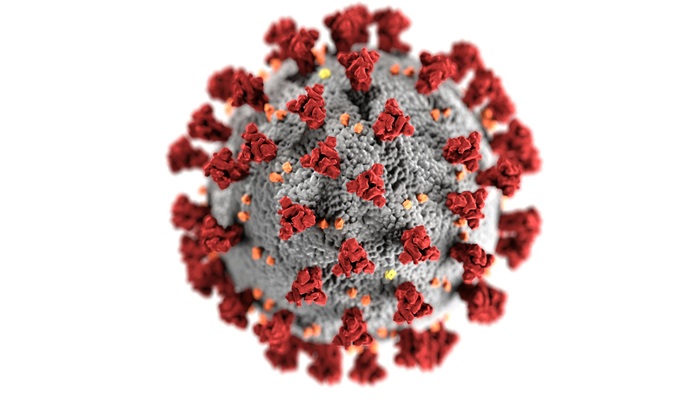Although millions of people all across have been impacted by the Covid-19 epidemic, some groups—including those suffering kidney illness and those receiving dialysis treatments—are more vulnerable. Complications from chronic diseases combined with impaired immune systems make them more prone to be severe. This post looks at the reasons kidney dialysis patients run more dangers, the particular difficulties Covid-19 presents, and how they could safeguard themselves.
The Connection Between Kidney Disease and Covid-19
A major disorder influencing waste and toxin filtering in the body is kidney disease. Dialysis is absolutely necessary for survival for people in later illness stages. Renowned for its effect on the respiratory system, the Covid-19 virus can also cause problems in persons with chronic medical conditions, especially those with weakened renal function.
Why Are Kidney & Dialysis Patients at Greater Risk?
Patients with chronic kidney disease (CKD) or on dialysis can have compromised immune systems. Fighting off diseases like SARS-CoV-2 (the virus causing Covid-19) is more difficult with this reduced immunity. For someone living with end-stage renal disease (ESRD) or on dialysis, infections that could be mild for a healthy person can be fatal.
Many dialysis patients may show up for their treatments many times a week at different facilities. Their exposure to the virus rises from their regular travel and close proximity with other patients and medical professionals. People with kidney failure are reportedly far more likely to experience serious Covid-19 problems including immediate kidney damage and long-term health effects.
Covid-19 and the Impact on Dialysis Treatments
Changes in Dialysis Procedures During the Pandemic
Dialysis centers have to change at the start of the epidemic to fit new safety procedures meant to safeguard staff members as well as patients. Standard practice became social distance, PPE (personal protection equipment), and regular sanitizing. These developments did, however, also bring difficulties such delays in treatments and restricted availability of home dialysis choices.
Though not every patient had access to this technology, many dialysis centers started using telemedicine for consultations and remote monitoring to cut patient exposure. For patients with kidney illness, the great risk of exposure in healthcare environments during dialysis sessions remained a major issue.
Increased Mortality Rates Among Dialysis Patients
Data indicates that dialysis patients had a far greater death rate from Covid-19 than the general population. The pre-existing diseases that frequently accompany renal disease—such as diabetes, hypertension, and cardiovascular disease—cause much of this higher risk. These disorders and the reduced immunological response of the body produce a perfect storm for major problems with Covid-19.
Protecting Kidney & Dialysis Patients During Covid-19
Vaccination and Kidney Disease
One of the most important weapons in lowering the effect of COVID-19 is vaccination. For patients on dialysis or with CKD, however, their compromised immune systems could mean less efficacy from the vaccination. Studies have indicated that although the vaccination provides protection, dialysis patients might not mount as robust of an immune response as those in general. Thus, maintaining additional preventative measures and boosting doses are absolutely vital.
Importance of Early Detection and Monitoring
Early COVID-19 symptom identification is absolutely vital for kidney and dialysis patients. Fever, coughing, dyspnea, and tiredness could all point to an infection; quick medical intervention is advised. For these high-risk patients, early intervention—including antiviral treatments—can dramatically increase outcomes.
Furthermore, as the virus has been found to directly affect renal function, constant observation for symptoms of acute kidney damage in Covid-19 patients is crucial. To avoid more difficulties, healthcare professionals have to closely monitor renal function in patients afflicted.
The Role of Healthcare Providers in Supporting Kidney Patients
The treatment of dialysis and kidney disease patients during the epidemic depends much on the healthcare providers. They have to combine reducing virus exposure with making sure patients get life-saving medicines. Among the tactics used include telehealth services, in-center infection control techniques, and, when practical, encouraging home dialysis.
Providers also have to be mindful of how Covid-19 might affect kidneys over long terms. Some Covid-19 survivors can have long-term kidney impairment, which could aggravate CKD or cause dialysis needs.
Managing Mental Health During the Pandemic
Remember too that the epidemic has caused psychological as well as bodily effects. The anxiety and stress kidney patients experience from their dread of catching Covid-19 and their isolation from frequent hospital trips can be extreme. These patients, who can already feel burdened by their chronic illness, depend on mental health support absolutely.
Conclusion
Kidney and dialysis patients especially suffer greatly from Covid-19; the virus increases their risk of serious sickness and death. These patients must be alert, get vaccinated, and closely coordinate with healthcare providers as the epidemic develops to control their renal health as well as possible Covid-19 exposure. Understanding the particular difficulties they experience and acting early will help us to shield this sensitive group from the harshest consequences of the infection.


















